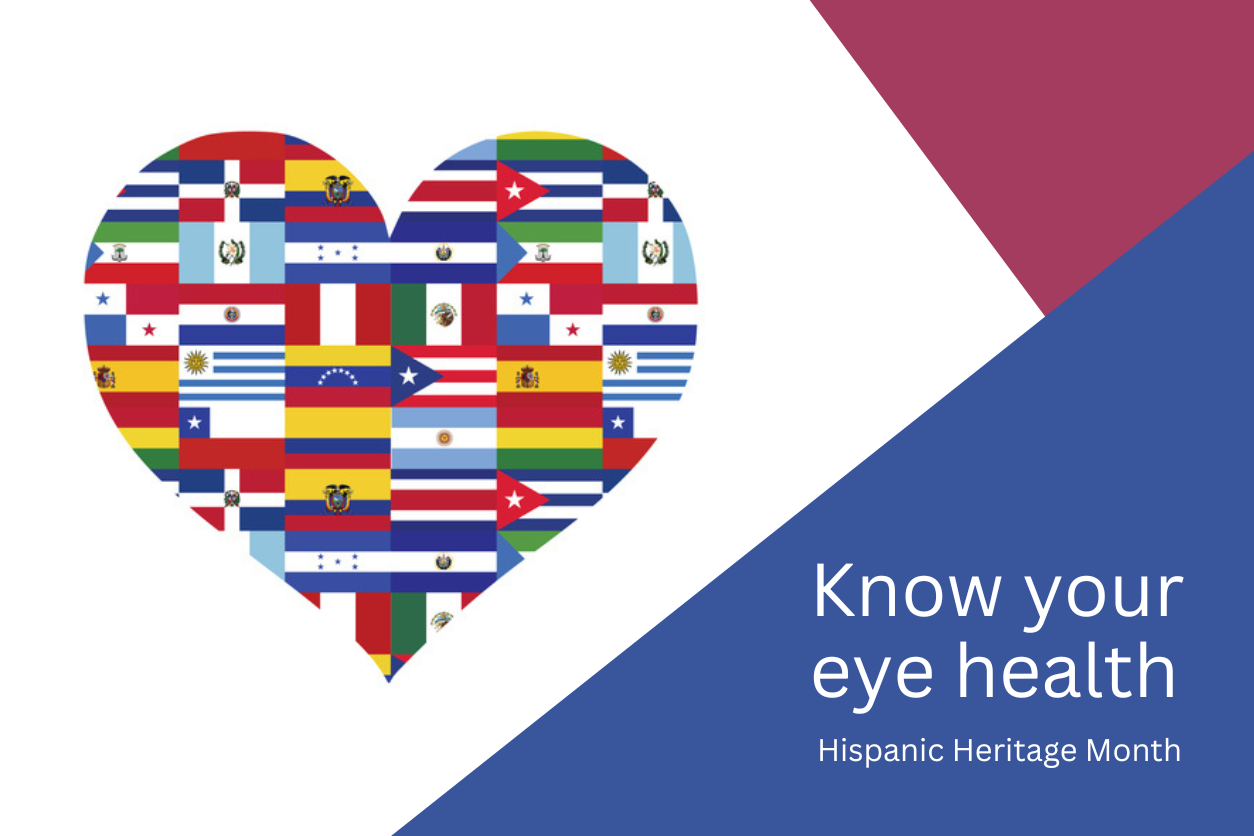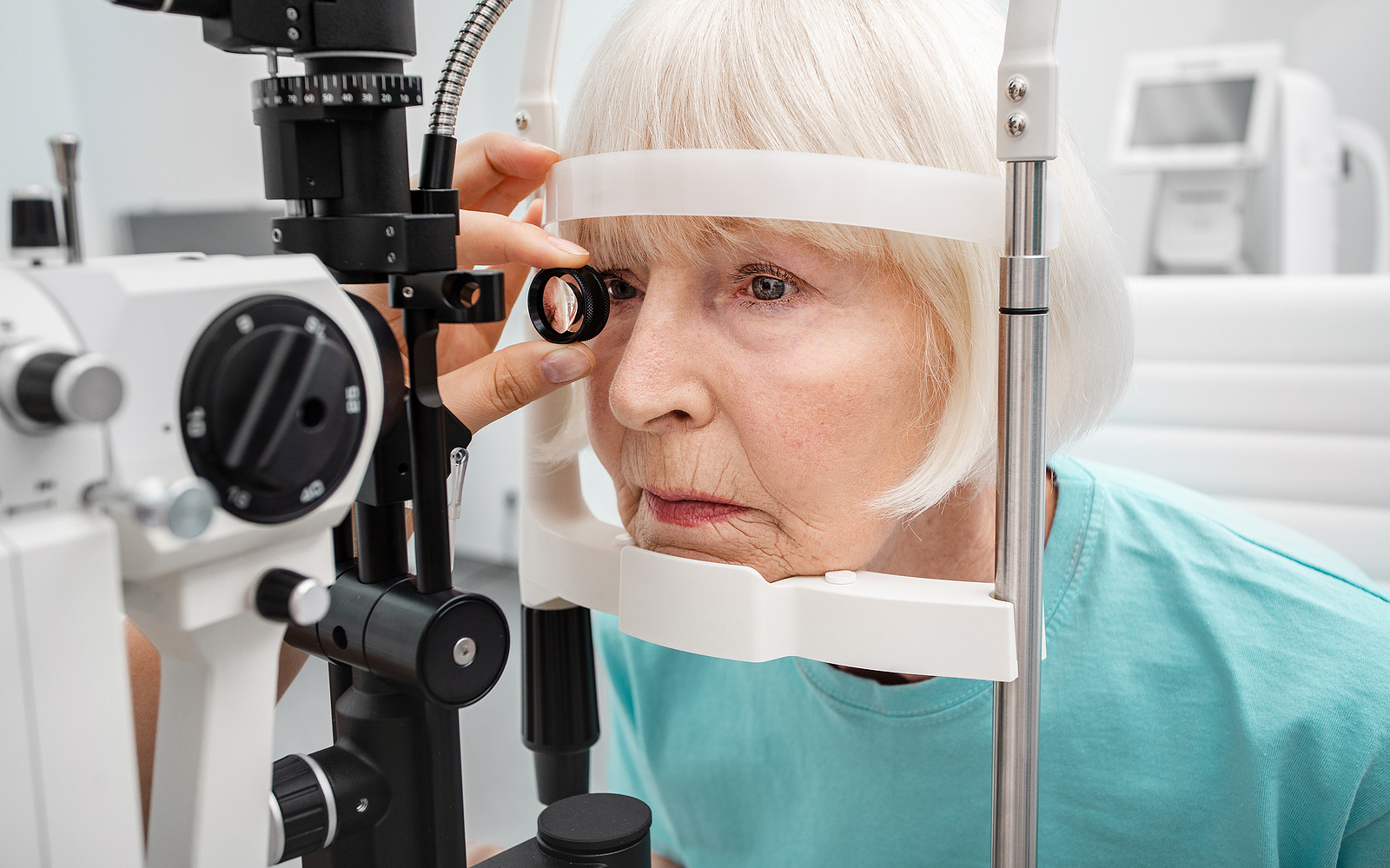Hispanic Heritage Month: Eye Health Among Hispanics and Latinos

Some eye diseases are more prevalent in Hispanic and Latino communities than others, outpacing the development of the general population for the same conditions as per the National Eye Institute. Hispanic Americans face a higher risk of blindness, glaucoma, diabetic retinopathy and more. Several mitigating factors can reduce your risk of developing certain eye problems.
In honor of Hispanic Heritage Month, learn about the vision problems uniquely impacting Hispanic and Latino patients, tips to help you preserve eyesight, and prevent vision problems.
What Is Hispanic Heritage Month?
Hispanic Heritage Month celebrates the history, cultures and contributions of Hispanic and Latino citizens whose ancestors came from Spain, Mexico, the Caribbean, Central America or South America.
In honor of Hispanic Heritage Month, Swagel Wootton Eye Institute is advocating for the eye health of Hispanic and Latino communities and educating the public on vision problems that impact these communities. Prioritize your eye health with an annual exam with our experienced eye doctors in Phoenix.
Eye Conditions Affecting Hispanics and Latinos
Diabetic retinopathy, glaucoma, pterygium, and cataracts disproportionately affect Hispanics/Latino population in large numbers. Some of the conditions are preventable with a healthy lifestyle and proper eye care, while others are treatable if caught early.
1. Diabetic Retinopathy
Diabetic retinopathy happens when high blood sugar levels cause damage to retinal blood vessels, often a complication of diabetes. The retina, located behind the eye, consists of light-sensitive tissue that focuses light and plays a key role in how the brain processes images. The National Eye Institute reports that 50% of Americans with diabetes may face diabetic retinopathy in their lifetimes. There are numerous factors that can put you at higher or lower risk of developing this eye disease, including:
- High blood sugar levels
- Smoking, vaping and other
- High blood pressure
If you have diabetes, it’s important to come in at least once a year for a screening. With early detection, treatments can slow the progression of retinopathy and potentially preserve vision.
What can you do to help prevent diabetic retinopathy from affecting you or someone you love? Here are a few tips from our eye doctors:
- Regulate blood sugar levels
- Watch your blood pressure
- Stop using tobacco products
- Eat healthy, low-sugar foods
- Exercise and watch your weight
- Come in for regular eye exams
2. Glaucoma
Glaucoma affects Americans of all ages and nationalities. However, Hispanics and Latinos make up a high percentage of these cases. To complicate matters, glaucoma often doesn’t have symptoms in the early stages, and it’s difficult to detect if you don’t come in for regular eye exams. Here are some of the risk factors that impact your chance of developing glaucoma:
- Heritage, being Black, Asian or Hispanic
- Advanced age, over the age of 60
- High blood pressure, sometimes associated with diabetes
- Family history of this condition
While there is no cure for glaucoma, it can be treated with surgical and nonsurgical solutions. Additionally, our staff recommends wearing sunglasses to protect your sensitive eyes from UV rays and maintaining a healthy weight to help offset the risk of losing your sight to glaucoma.
3. Pterygium
Pterygium is a fleshy growth that typically starts in the corner of the eye nearest your nose and affects the clear covering over the whites of your eyes. It develops over time as the eyes are exposed to dust, wind and other natural elements. They usually don’t cause pain but may generate irritation and redness. In some cases, they can impair vision and your eye doctor may recommend having them removed. Pterygium impacts Hispanic and Latino patients more frequently than others and are more common in men than women. People between 20 and 50 who spend lots of time outdoors are more susceptible to developing pterygium.
To help prevent this condition, you can wear sunglasses and brimmed hats to protect your eyes from sunlight and avoid dusty settings or wear protective eyewear if you work in a smoky, dusty environment. Swagel Wootton offers pterygium removal and aftercare to improve your eyesight.
4. Cataracts
Cataracts occur when the eye’s lens becomes clouded, you may have difficulty seeing. Older adults are more likely to experience significant vision loss due to cataracts in one or both eyes.
They’re more likely to occur in those over the age of 40. Like many eye conditions, prolonged exposure to UV light, diabetes, age, and smoking compound your risk of developing cataracts. Meet your eye doctor today to determine the best way to prevent or mitigate vision loss due to cataracts.
What Can You Do?
Our eye doctors do everything they can to help prevent all of our patients from developing debilitating eye conditions. Here are a few recommendations from the CDC regarding ways that Hispanics and Latinos can protect their eyesight.
Wear Protective Eyewear
Your optometrist can help you understand how to prevent eye injuries and protect your vision. This is essential for Hispanics and Latinos at increased risk of developing the above eye conditions.
As any optometrist will tell you, wearing protective eyewear is essential for preventing eye injuries. This is especially true for Hispanics and Latinos, who are at increased risk of developing serious eye problems.
Wearing protective eye gear, such as sunglasses and work goggles, can preserve your vision and help you prevent sunburned, dry eyes that are even more susceptible to eye disease.
Know Your Family History
Heredity plays a large role in eye disease as in many other conditions. Latinos and Hispanics are prone to certain eye diseases and conditions. Many Hispanic and Latino families are very focused on life at home. This is the perfect opportunity to learn more about your family history to determine whether you’re at risk for one or more of these conditions.
It’s also useful for new parents to know whether they can pass any of these conditions on to their children. Bring your questions along when you meet with one of our doctors for a consultation or eye exam to celebrate Hispanic Heritage Month.
Live a Healthy Lifestyle
Do you eat the right foods and get enough exercise every day? There are certain things that you can add to your diet to give your eyes the nutrients they need to remain healthy throughout your life. For example, you can eat more carrots and other foods with high vitamin A and drink juices or eat fruits with lots of vitamin C to keep your eyes healthy and strong.
Getting 30 minutes of exercise a day can improve your overall health and help keep diabetes and other conditions that impact the eyes in check. We also recommend that you quit smoking and limit your exposure to those who do smoke, as smoke aggravates many eye conditions.
Don’t Ignore Vision Changes or Problems
A lot of Hispanics and Latinos, and other Americans for that matter, choose to ignore vision changes because they are too busy or frightened to find out what the problem is. However, ignoring the problem can lead to serious consequences for your site.
If you have diabetes, high blood pressure or other health problems, it’s important to take care of your eyes. If you aren’t sure what you can do to help prevent eye diseases, we will be happy to suggest lifestyle changes that may have an immediate impact on your long-term vision.
Get Care at Swagel Wootton Eye Institute in Phoenix
At Swagel Wootton, we have a history of excellence and focus on our patients. We offer the following advantages over many eye care facilities in the Mesa and Chandler areas. These advantages include the following:
- Bilingual staff: Some staff members speak Spanish fluently to make appointments more convenient for those of Hispanic and Latino heritage.
- A wide range of services: We offer numerous eye care services for adults and children of all ages and backgrounds.
- Comprehensive eye exams: Annual eye exams can indicate early signs of diseases such as glaucoma and cataracts. They are essential to preserving your vision.
Our team specializes in treating cataracts and other vision impairing diseases. Contact Swagel Wootton Eye Institute today to schedule an appointment or to find out more about how our caring staff can protect your vision health.
[DISPLAY_ULTIMATE_SOCIAL_ICONS]








